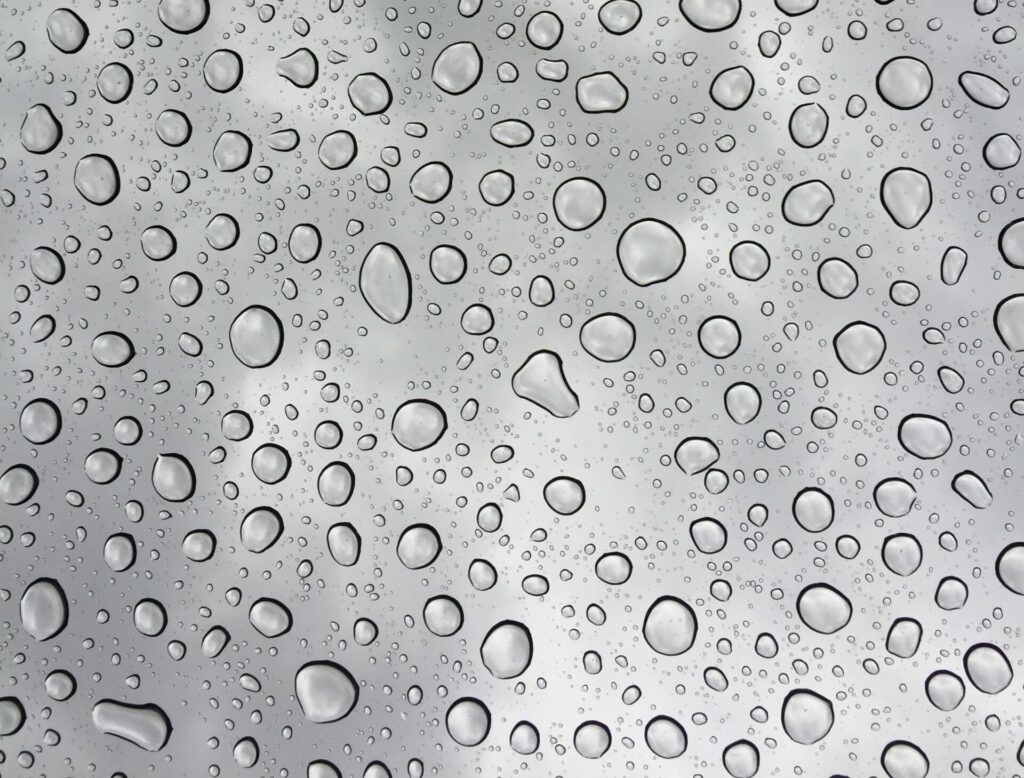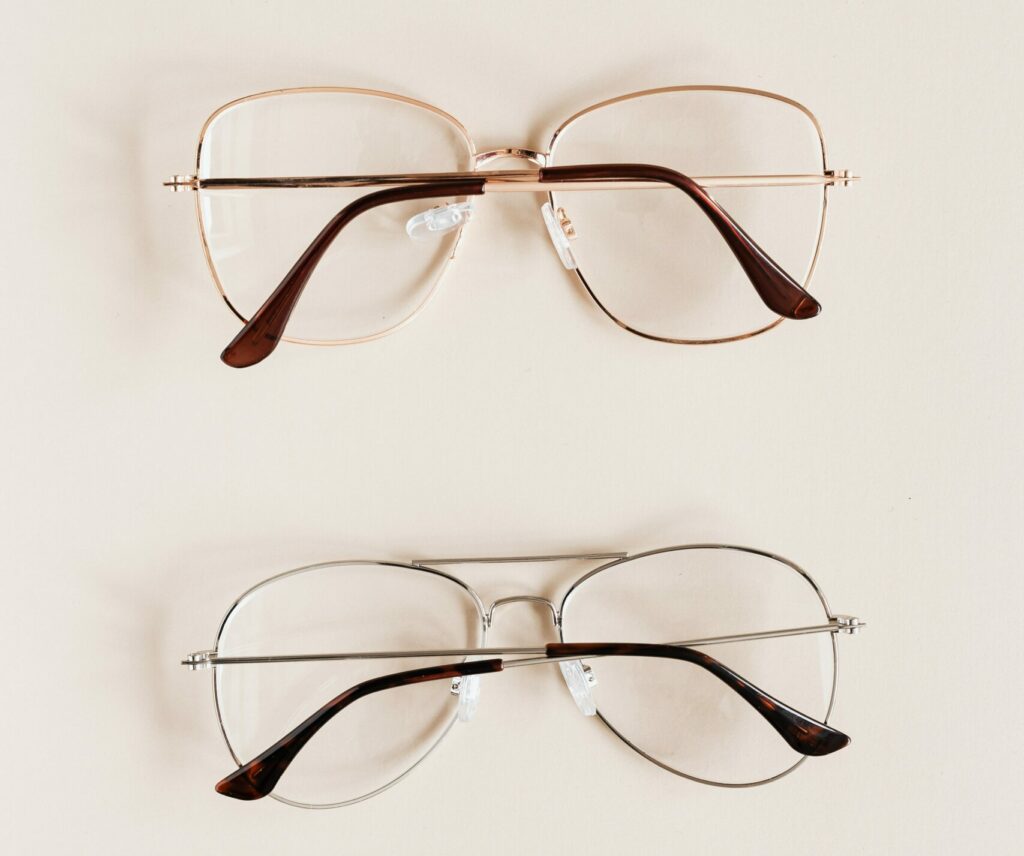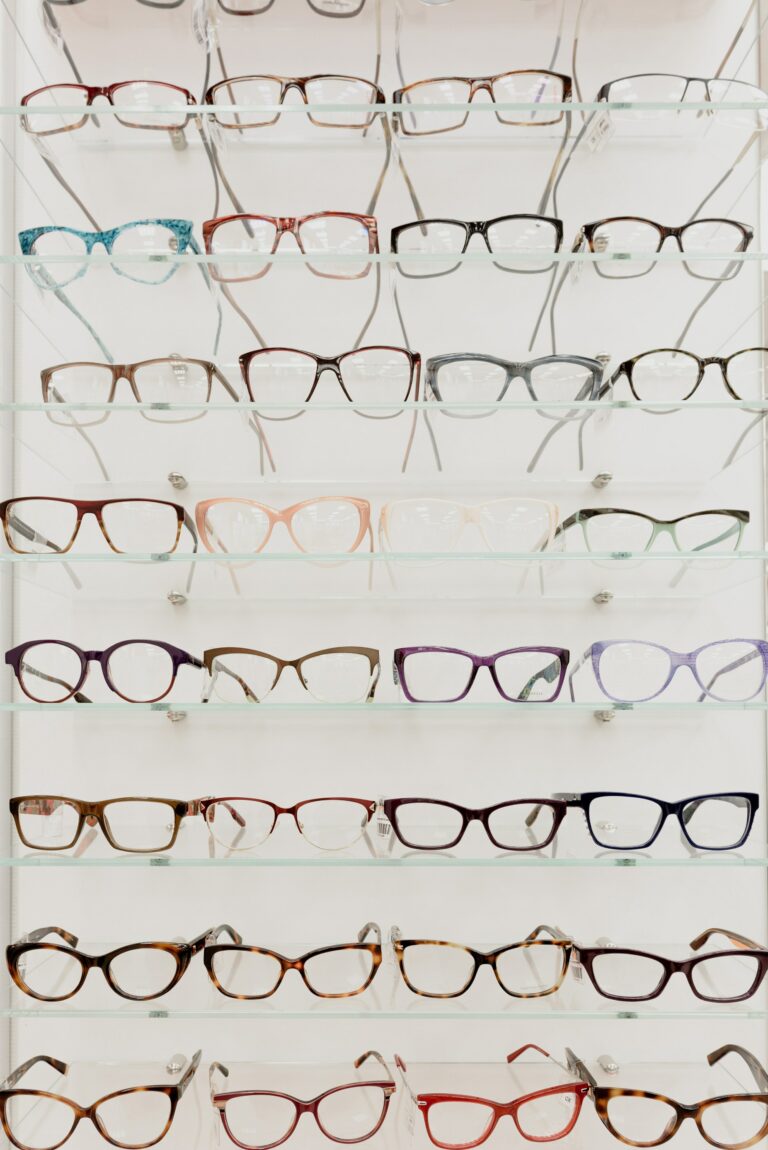How to Keep Your Glasses Clean and Smudge-Free?
It’s crucial to keep glasses spotless for a number of factors. Clean glasses are essential for maintaining sharp eyesight. The visual distortions that can result from dirty or smudged spectacles can reduce sharpness and make it challenging to see clearly. Additionally, ocular strain and discomfort can result from smudges and dirt on glasses because the eyes have to work harder to concentrate through the obstruction. Finally, maintaining glasses properly can increase their lifespan and shield them from dents, scratches, and other harm that could come from poor cleaning procedures or storage.
Use the Right Materials for Clean Glasses
Using the right materials is important for your clean glasses because certain materials can scratch or damage the lenses. For example, paper towels or tissues may seem like a convenient option for wiping glasses, but they can actually leave scratches on the surface of the lenses, especially if they are coated with anti-glare or anti-scratch coatings. Similarly, harsh or abrasive cleaning solutions can also damage the lenses over time.
On the other hand, using the right materials can ensure that glasses are properly cleaned without causing any damage. Microfiber cloths are a good option for wiping away dirt and smudges, as they are soft and gentle on the lenses. Lens cleaning solutions specifically designed for eyeglasses are also a good choice, as they are formulated to effectively remove smudges and dirt without damaging the lenses. By using the right materials, glasses can be kept clean and clear without risking any damage or scratches.
Recommended Materials for Clean Glasses
Here are some recommended materials for cleaning glasses:
l Microfiber cloths: Because they are delicate and soft, microfiber cloths are a great option for cleaning spectacles. Smudges and grime can be removed with effectiveness and without damaging the lenses or scratching them. Keeping a few microfiber towels on hand will ensure that you always have a fresh one on hand for use.
l Lens cleaning solution: Specially made for cleaning eyeglasses, lens cleaning solution is formulated to remove smudges and grime efficiently without harming the lenses. Some cleansing agents might also be anti-fog or anti-static, which can be useful in some circumstances.
l Warm water: In some circumstances, cleaning glassware with just warm water is sufficient. This is especially helpful for getting rid of tough dirt or debris that might not be readily removed with a cloth.
l Dish soap: You can make a cleaning solution for glasses by mixing warm water with a small quantity of dish soap if they are especially greasy or dirty. To avoid leaving any residue, it’s crucial to only use a small quantity of soap and to thoroughly rinse glasses.

Clean Tips
Microfiber cloths:
l To prevent transferring dirt or debris onto the lenses, use a clear microfiber cloth.
l To avoid putting pressure on the lenses, hold the glasses by the frame rather than the lenses.
l To clear smudges and dirt, gently wipe the lenses in a circular motion.
l Dry the lenses carefully with the microfiber towel and remove any streaks.
Lens cleaning solution:
l To prevent over-spraying or leaving streaks, apply the cleaning solution to a clean microfiber cloth rather than directly onto the lenses.
l To clear smudges and dirt, gently wipe the lenses in a circular motion.
l Remove any excess solution and dry the lenses with a clean, dry microfiber towel.
Warm water:
l Use warm water to rinse the glasses to eliminate any loose dirt or debris.
l To remove any residual smudges or dirt, gently wipe the lenses with a clean microfiber towel.
l Dry the lenses and remove any streaks with a clean, dry microfiber towel.
Dish soap:
l Add a small amount of dish soap to warm water to create a cleaning solution.
l Rinse glasses under warm water to remove any loose dirt or debris.
l Dip the glasses into the cleaning solution and gently rub the lenses to remove any remaining smudges or dirt.
l Rinse the glasses thoroughly under warm water to remove any soap residue.
l Use a clean, dry microfiber cloth to dry the lenses and remove any streaks.

Wash Your Hands Before Handling Glasses
Washing your hands before handling glasses is an important step in maintaining good hygiene and preventing the spread of germs. Here are a few reasons why:
l Preventing the spread of bacteria and viruses: Our hands come into contact with many different surfaces throughout the day, and can pick up bacteria and viruses that can cause illness. By washing our hands before handling glasses, we can reduce the risk of transferring these germs onto the glasses and potentially infecting ourselves or others.
l Avoiding smudges and fingerprints: Oils and dirt from our hands can leave smudges and fingerprints on glasses, making them harder to see through and requiring more frequent cleaning. By washing our hands before handling glasses, we can reduce the amount of oil and dirt on our fingers and minimize the need for cleaning.
l Protecting the lenses: Dirt and oils from our hands can also damage the lenses over time, particularly if they have anti-glare or anti-scratch coatings. By washing our hands before handling glasses, we can minimize the amount of dirt and oils that come into contact with the lenses and help them last longer.
To correctly wash your hands before handling glasses, use soap and warm water and scrub all surfaces of your hands, including the backs, between the fingertips, and under the nails, for at least 20 seconds. Hands should be completely rinsed and dried with a clean towel or an air dryer. Handle glasses by the frame rather than the lenses once your hands are clean to prevent smudging or scratching.
Store Glasses Properly
Storing glasses properly can help protect them from damage and extend their lifespan. Here are some tips for storing glasses:
n Use a hard case: A hard case is the best way to protect your glasses when you’re not wearing them. It will protect them from scratches, dust, and other types of damage. Make sure the case is the right size for your glasses and has a soft lining to prevent scratching.
n Avoid leaving glasses in direct sunlight: Sunlight can damage the lenses and frames of glasses over time. When you’re not wearing your glasses, keep them in a cool, dry place away from direct sunlight.
n Store glasses in a secure place: Make sure your glasses are stored in a secure place where they won’t get knocked over or bumped. This will help prevent damage to the frames and lenses.
n Don’t place glasses face down: Avoid placing your glasses face down on any surface as this can cause scratches to the lenses.
By following these tips, you can help protect your glasses and keep them in good condition for longer.
Summary
Regular maintenance and the use of the proper cleaning tools are required to keep your clean glasses and smudge-free. To begin, wipe away any loose debris or grit from your lenses with a microfiber towel. Then, using a microfiber cloth, carefully rub the lenses with a small quantity of lens cleaner or a dish soap and water solution. Paper towels and Kleenex should be avoided as they can scratch the lenses. Rinse thoroughly with water and pat dry with a clean microfiber towel. To avoid smudging, avoid touching the lenses with your fingertips and clean the edges with the cloth’s corners. When not in use, keep your spectacles in a hard case to keep dust and dirt at bay.







